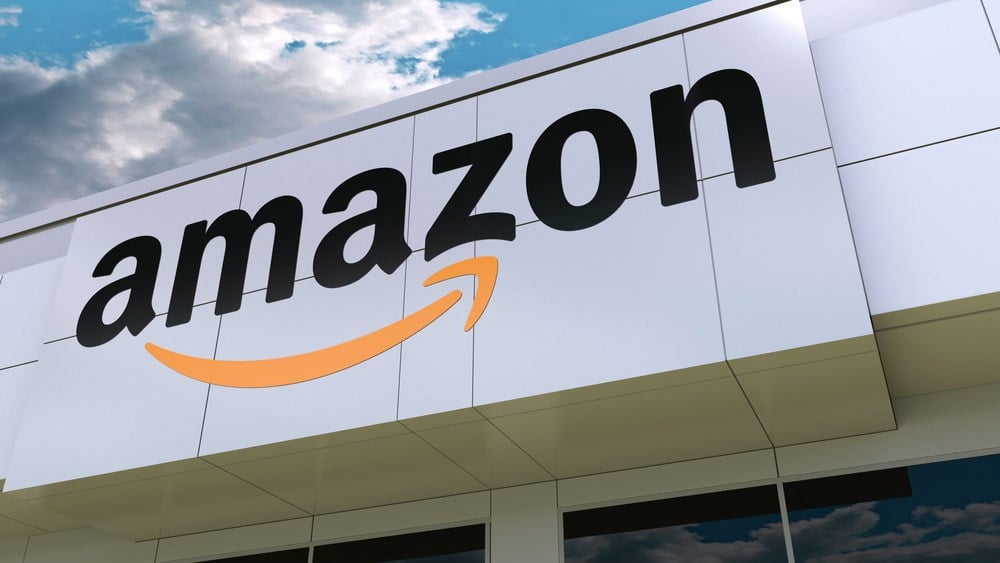
As an Ivy League law student, Federal Trade Commission chair Lina Khan once wrote that Amazon.com Inc. (NASDAQ: AMZN) was anti-competitive because its prices were too low.
That’s a tough premise on which to base your anti-trust argument if, a mere six years out from being in school, you’re a high-powered federal regulator who’s determined to sue a company.
Instead, Khan’s FTC settled on “prices too high” as the basis for a suit it filed on September 26.
Could she have a point this time, even though consumers can find items for lower prices on Amazon?
That’s for lawyers and judges to sort out, but it’s undeniable that Amazon has cornered a huge part of the online shopping market.
Walmart Ramps Up E-Commerce Efforts
Walmart Corp. (NYSE: WMT) is making an effort to catch up to Amazon’s e-commerce business. Walmart is using an asset Amazon doesn’t have: Its stores are playing a role as launch pads for home delivery of groceries, and it’s testing the use of stores for packing and shipping third-party sellers’ merchandise.
Amazon is the dominant online shopping player, with nearly 40% of domestic market share. Meanwhile, Walmart’s e-commerce revenue accounts for about 7% of the U.S. total.
Amazon got a huge boost in earnings in 2020 and 2021 as consumers went on spending sprees from home, but that growth spurt began sputtering out in late 2021 as consumers resumed more normal spending habits.
Lawsuit Follows Operating Losses
The timing of Khan’s suit could be construed as odd, as it follows a year in which Amazon reported its first loss since 2014. It lost 27 cents a share last year, with revenue growth dropping to double-digit rates following the red-hot pandemic-era increases.
The 2022 operating loss of more than $10 billion affected nearly all Amazon business units, such as Prime, Marketplace and advertising. Its business-to-business cloud computing unit, AWS, generated more than $80 billion in revenue last year, and an operating profit of nearly $23 billion. However, those results were offset by weakness elsewhere.
The FTC is claiming Amazon is a monopolist, and perhaps there’s some validity to that, when it comes to e-commerce. However, it narrowed down Amazon’s market to online stores operated by mega-caps such as Target Corp. (NYSE: TGT) and Walmart.
However, plenty of smaller online retailers are thriving, but they’re not publicly traded companies and they flourish in smaller, niche markets where Khan and her team don’t have as much visibility.
FTC Says Amazon Suppressing Price Competition
In its suit, the FTC says Amazon is suppressing price competition by cracking down on rival retailers who offer discounts.
If an item is promoted by Amazon, particularly in a situation in which multiple vendors offer the same item, Amazon won’t allow the vendor to price the item lower somewhere else, according to the FTC.
In other words, it’s forcing lower prices on consumers.
But here’s the catch: If Amazon made a practice of highlighting the most expensive items in a category, Khan’s FTC might say the retailer was attempting to gouge consumers, as it earns a percentage from every third-party sale. That means it would earn more by promoting the highest-priced item in a category.
While the FTC suit doesn’t necessarily make sense, at least not in totality, U.S. regulators have a history of going after companies in the name of consumer protection.
Will Amazon Be Broken Up?
Some analysts say Khan isn’t explicitly asking for Amazon to be broken up, but even if the company’s various pieces are sold off, would that hurt shareholders? After all, you could make the argument that the AWS server business isn’t the same as a business that sells third-party wares over the Internet.
The Walt Disney Co. (NYSE: DIS) might offer a parallel in that it’s a business whose tentacles are spread in many disparate directions, and some shareholders and analysts are calling for some assets to be spun off or sold off. However, in the case of Amazon, it’s a regulator who is putting the company under the microscope, so the situations aren’t totally analogous.
Shares of Amazon declined 4.03% on news of the suit but traded higher in the subsequent two sessions, indicating that investors may not be terrified, whatever the outcome.
In addition, Khan has a poor track record of making anti-trust allegations stick. Recently, an FTC move to block Microsoft Corp.’s (NASDAQ: MSFT) acquisition of Activision Blizzard Inc. (NASDAQ: ATVI) was nixed by a federal judge, perhaps giving investors some security that the Amazon suit, too, will be watered down or dropped.














